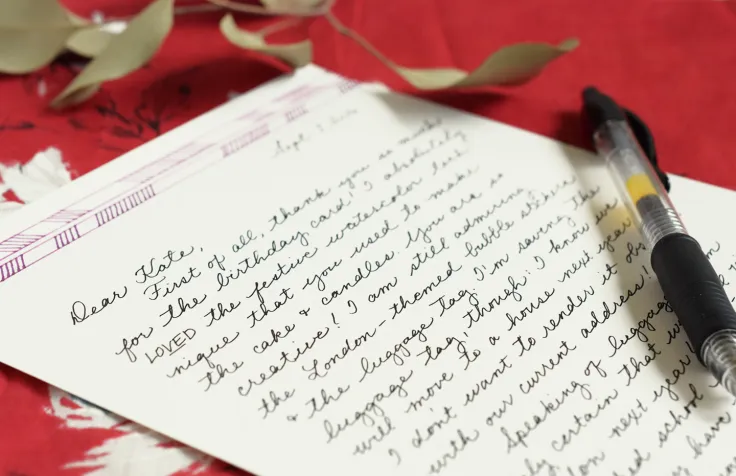Yes, in this modern, digital age, it may be regarded as lost, yet a beautifully written letter does still hold immense power in personal, professional, and romantic correspondence. The United Kingdom has produced some of the world’s most renowned writers of all time, and many of them are considered masters when it comes to letter writing. These authors can provide you with great inspiration and tips to write significant and articulate letters. In this paper, we look at which British writers can help you make a better letter, explain why they are special, and provide examples of their style that you can use in your own writing.
1. Jane Austen (1775–1817)
Few authors have the finesse that Jane Austen possesses in capturing the essence of letter writing. More often than not, her novels have letters as their hubs; they are important ways through which her characters communicate. The major characteristics of Austen’s letters are wit, charm, and subtlety that can add style to your personal or formal letter.
Austen’s tact and courtesy in publicly uttering complicated and deep feelings and thoughts turn her into the best guide for those wanting to write letters of reasoning, which balance sincerity and formality. Much of her work reflects the importance of tone and etiquette in communication; particularly, Pride and Prejudice uses letters to express emotions and reveal character.
Example: In Pride and Prejudice, the letter to Elizabeth Bennet from Mr. Darcy represents a fine example of how one can express difficult emotions and explain oneself clearly yet tactfully. His letter is organised, compact, and considerate-three essential features of a well-penned letter.
Why Austen? The reason being that Austen was a genius of understated emotion, whereas clarity is foremost in her writing about communication. She’ll help you write heartfelt yet respectful letters to address personal and professional matters.
2. Charles Dickens (1812–1870)
Charles Dickens was an inveterate letter writer, and his ability to create broadly drawn characters and settings in his novels carried over into his personal letters. Letters from Dickens often contain descriptive language, including vivacious dialogue, and can inspire you to write entertaining, personality-filled missives.
Letters were one means for Dickens to reach his friends, family, and colleagues in his lifetime, using humor and visual enhancements to drive a point home. No dreary and mechanical letter ever flowed from his pen; every letter was an opportunity to tell a story or to give comfort.
Example: Dickens once wrote to a friend, “There is nothing in the world so irresistibly contagious as laughter and good humour.” This ability to use language to create warmth and connection is something which may elevate any letter and make it unforgettable, a real treat to read.
Why Dickens? His ebullient, epistolary style will help you write letters that are entertaining, introspective, and yet brimming with life-even on the most mundane subjects.
3. Virginia Woolf (1882–1941)
Anyone who would want to write introspective, deeply personal letters will find in Virginia Woolf a model. She was certainly one of the most expressive and reflective writers not only in her novels but also in her personal letters. So often, her letters delve into the substance of thought and feeling that is relational in an intimate way with her inner world.
This can be particularly useful when writing letters of a more emotional or philosophic tone-be it love, loss, or rumination. Woolf’s letters are always considerate, eloquent, and oftentimes even carry acumen of the most profound insight into human existence.
Example: In one letter to her friend and lover, Vita Sackville-West, Woolf wrote, “I am reduced to a thing that wants Virginia. I composed a beautiful letter to you in the sleepless nightmare hours of the night, and it has all gone: I just miss you, in a quite simple desperate human way.” This demonstrates how Woolf harnessed the nuances of letter writing to express emotion with raw honesty and in elegance.
Why Woolf? Because she puts emotion and intellect together in such a manner as to hopefully allow you to write letters that are deep and meaningful, enabling you to delve into and express your thoughts with clarity and sensitivity.
4. Oscar Wilde (1854–1900)
If you need to fill your letters with so much wit and charm, then Oscar Wilde should be the one for you, being one of Britain’s most famous writers. Quick-witted, full of wordplay, and generally brilliant, Wilde’s letters were just as sharp as his plays and essays-perfectly suited for those looking to add a little classy playfulness to correspondence.
Not infrequently, Wilde’s letters flash with brilliant observations of life and society, but they can be really warm and full of affection, too. He approached letter writing both for humour and for ideas, making his letters a real joy to read and a good model to those desiring to write letters that leave a lasting impression.
Example: “With freedom, books, flowers, and the moon-who could not be happy?” he once wrote in one of his letters. His expressiveness of joy and gratitude for life’s niceties could bring a positive note and grace into your letters as well.
Why Wilde? His humorously brilliant style will serve you well in constructing letters that are both playful yet serious; it will give you sparkle with your words and tenderness all at the same time.
5. George Orwell (1903–1950)
George Orwell is one of the excellent writers that provide enough insight into clarity and directness regarding letter writing. In fact, his ability to write clear, no-nonsense prose has been bettered in very few letters. Thus, Orwell is the ideal mentor for those looking to pen concise, yet impactful letters.
Most of Orwell’s letters were politically charged and reflected the most topical social problems of his time, but his pledge for clarity can be extended to any type of communication. Be it a formal letter or addressing personal concerns, Orwell’s method teaches you to be brief yet to the point without sacrificing the depth of your message.
Example: In a letter, Orwell once remarked, “Good prose is like a windowpane.” His commitment to lucid, transparent writing makes his style a good fit for those interested in communicating effectively and unequivocally.
Why Orwell? His concentration on simplicity and clarity will help you to write letters clear, purposeful, and readable, be it in professional or formal contexts.
6. John Keats (1795–1821)
John Keats was perhaps the most famous Romantic poet and used to write a lot of very personal and emotionally loaded letters, especially to his loved ones. His letters are rich with poetic language, impassioned words of love, and thus make him an ideal influence upon those writing romantic or emotional letters.
Keats’ letters are often brilliant with imagery and lyrical beauty, reflecting the depth of his feelings. Be it a love letter or an evocative expression, Keats’ personal and poetic touch can be an inspiration in your hunt to put your feelings into words with passion and candor.
Example: Keats, in a letter to his fiancée Fanny Brawne, has expressed himself thus: “I cannot exist without you—I am forgetful of everything but seeing you again—my Life seems to stop there—I see no further.” His ardent words speak volumes for the flaming passion within him, and this is what makes the magic-a sheer example to write a love letter.
Why Keats? Because his poetry is such an outpouring of deep emotion, he can help you tell deep, personal letters-be those of love or really deep affection.
7. C.S. Lewis (1898–1963)
C.S. Lewis, while known for the philosophical deliberations of romance within his stories, first and foremost was a prolific letter writer. His letters were incredibly reflective regarding faith, friendship, and life, making him a great source from which to base any kind of reflective or contemplative letter templates writing.
Lewis’ letters are warm and wisdom-laden, especially to those very close to him. The ease with which he can broach very deep, personal matters with sincerity and openness means that any person writing letters of comfort, advice, or deep friendship could profit from his example.
Example: To his friend Arthur Greeves, he had written in a letter, “Friendship is born at that moment when one person says to another, ‘What! You too? I thought I was the only one.'” This evidence shows how Lewis used letters to build meaningful connections.
Why Lewis? His considerate and reflective style makes him an excellent guide to write letters on deep ideas or heartfelt advice and support.
Conclusion
The works of great British writers can serve as a means to learn the art of letter writing. From Oscar Wilde’s witty and jolly letters to John Keats’s heartfelt and poetic expressions, the way one communicates with emotional appeal and elegance is timeless. Be it writing a love letter, a letter of gratitude, or even a professional note, the inspiration derived from such literary figures will go a long way in helping to draft that perfect message.

